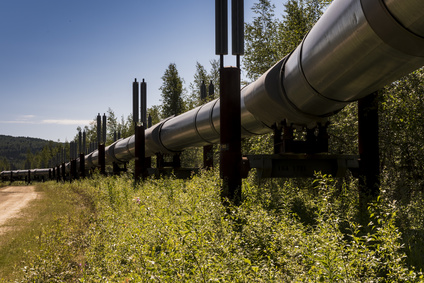Trans Mountain pipeline: A poor solution that sends the wrong signal

Montreal, May 29, 2018 – Ottawa’s purchase of the Trans Mountain pipeline from Kinder Morgan for $4.5 billion is a poor solution that once again sends the message that Canada is not very welcoming of investors, deplores the MEI.
“The government is putting $4.5 billion of public funds into a private project that was approved by the regulatory agencies, that satisfies environmental criteria, and that has won 16 legal battles one after another. Instead of making sure the law is respected, the government is nationalizing a pipeline. It makes no sense!” says Alexandre Moreau, Public Policy Analyst at the MEI.
Moreover, Ottawa’s decision does not entirely clear away the uncertainty surrounding the project, adds Mr. Moreau. “Even if the federal government restarts work on the expansion, there’s no guarantee that the political and legal conflict will end. And the way things are going, Ottawa might even have trouble finding a buyer for the pipeline down the road. This kind of project belongs in the private sector, and it should never have left it.”
Recall that Kinder Morgan’s announcement in April suspending the Trans Mountain pipeline expansion—a $7.4 billion project that was to create thousands of jobs in the country—followed the abandonment of a series of large infrastructure projects in the country, totalling $84 billion just since the start of last year. Indeed, the fall in oil and gas investment and the abandonment of projects may get worse in Canada, due to the erosion of our fiscal and regulatory competitiveness compared with the United States.
“The message being conveyed to investors is: ‘Don’t come here to do business. Even if you fulfil all regulatory requirements, you’ll still face many obstacles’,” explains Alexandre Moreau.
The Trans Mountain project, which is supposed to triple the capacity of the existing pipeline in order to transport up to 900,000 barrels of oil per day from Alberta to the port of Burnaby, B.C., aims to expand export markets for Canada’s oil resources. Indeed, the National Energy Board predicts that the country’s oil production will increase substantially from now until 2040, and that Canada needs these outlets.
“Ottawa shouldn’t have let the conflict between British Columbia and Alberta drag on, over a project that it had already approved. The consequence is that now, Canadian taxpayers find themselves owning a pipeline that a private company was managing successfully. With the uncertainty surrounding NAFTA already hurting the business climate, Canada is sending a signal that will further undermine the development of our natural resources,” concludes Alexandre Moreau.
* * *
The Montreal Economic Institute is an independent, non-partisan, not-for-profit research and educational organization. Through its studies and its conferences, the MEI stimulates debate on public policies in Quebec and across Canada by proposing wealth-creating reforms based on market mechanisms.
– 30 –
Interview requests: Pascale Déry, Vice President, Communications and Development, MEI / Tel.: 514-273-0969 ext. 2233 / Cell.: 514-502-6757 / Email: pdery@iedm.org

